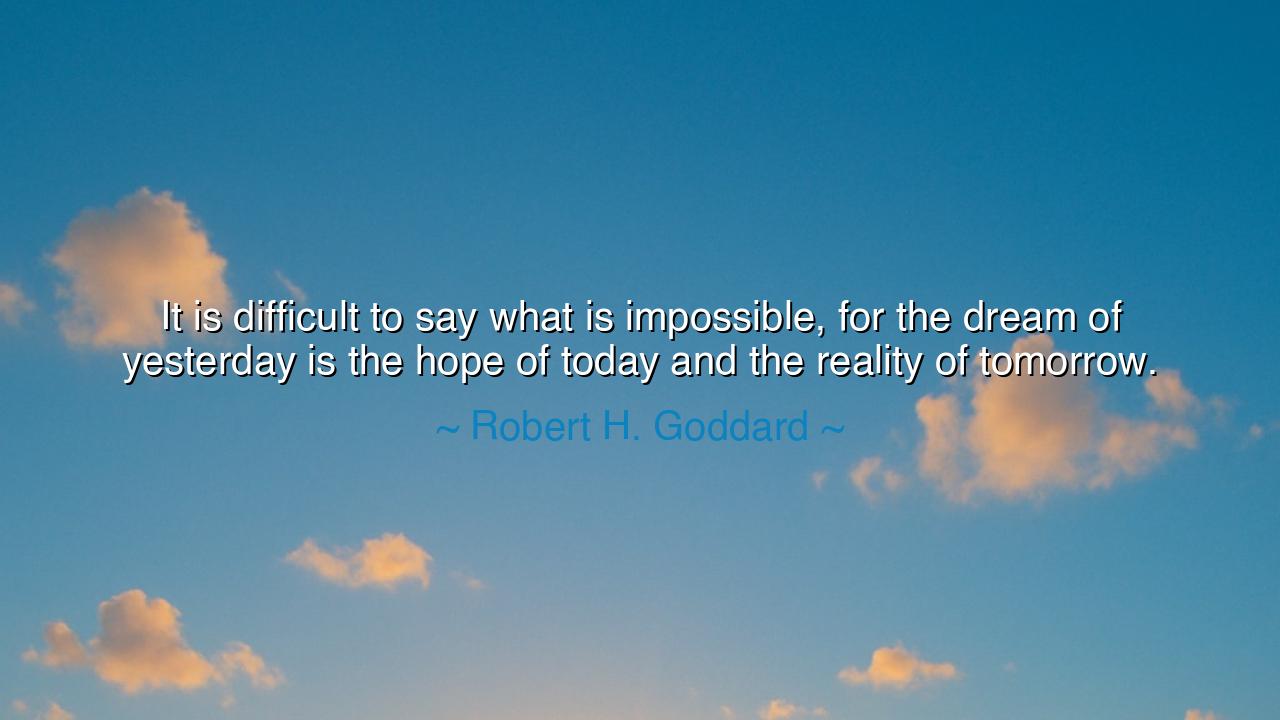
It is difficult to say what is impossible, for the dream of
It is difficult to say what is impossible, for the dream of yesterday is the hope of today and the reality of tomorrow.






In the luminous words of Robert H. Goddard, the father of modern rocketry, we find a truth that burns as brightly as the stars he once dreamed to reach: “It is difficult to say what is impossible, for the dream of yesterday is the hope of today and the reality of tomorrow.” This is not merely a statement of science, but a hymn to the enduring spirit of human aspiration. It is the song of all who have dared to look beyond the known, who have chosen to see possibility where others saw only limitation. Goddard, a man who lived between ridicule and revelation, spoke these words not from comfort, but from the depths of vision — a vision that saw the future long before it could take flight.
In every age, there have been those who declared certain things to be impossible. They said man would never sail beyond the horizon, that the air was not meant to be conquered, that the heavens were beyond human reach. Yet, each of these impossibilities was undone by the dreamers — those who, like Goddard, refused to accept the limits of the present as the boundaries of the possible. For the dream of yesterday is not a fantasy; it is a seed, fragile yet alive, planted in the soil of imagination. Nurtured by courage and persistence, it grows into the hope of today, and through labor and faith, it blossoms into the reality of tomorrow.
Goddard himself was mocked for believing that rockets could one day pierce the sky. The newspapers of his time ridiculed him, calling his work foolish, his dreams absurd. Yet he continued to labor in silence, building engines that roared like thunder in empty fields. In 1926, he launched the world’s first liquid-fueled rocket — a small and fragile thing by modern standards, but mighty in significance. It rose only a few dozen feet, yet in that brief ascent, humanity’s reach expanded beyond the realm of earthbound imagination. From that humble beginning came the engines that would one day carry mankind to the moon and beyond. What was once impossible had become not only possible, but inevitable.
So it has been since the dawn of civilization. The builders of the pyramids, the navigators of the oceans, the inventors of light and flight — all were heirs to the same truth. Each began as a dreamer, misunderstood by their time, guided by an inner conviction that the unseen was worth pursuing. The Wright brothers, fragile men with fragile wings, were told that flight was a folly against nature. Yet they believed. They fell, and rose, and fell again — until the air itself yielded to their persistence. Like Goddard, they proved that yesterday’s dream, when held fast with courage, becomes the reality of tomorrow.
In these






AAdministratorAdministrator
Welcome, honored guests. Please leave a comment, we will respond soon